This strengthened Quality Standards activity pack is designed for providers to deliver to their own staff. This pack can be delivered in full or used as a series of lesson plans for sessions on applying each of the strengthened Standards to your residential services setting.

This visual scenario and supporting user guide has been designed to support aged care workers with information about eating and drinking with acknowledged risk (EDAR). It explains the best practice and practical strategies that providers should use when implementing EDAR in their service.
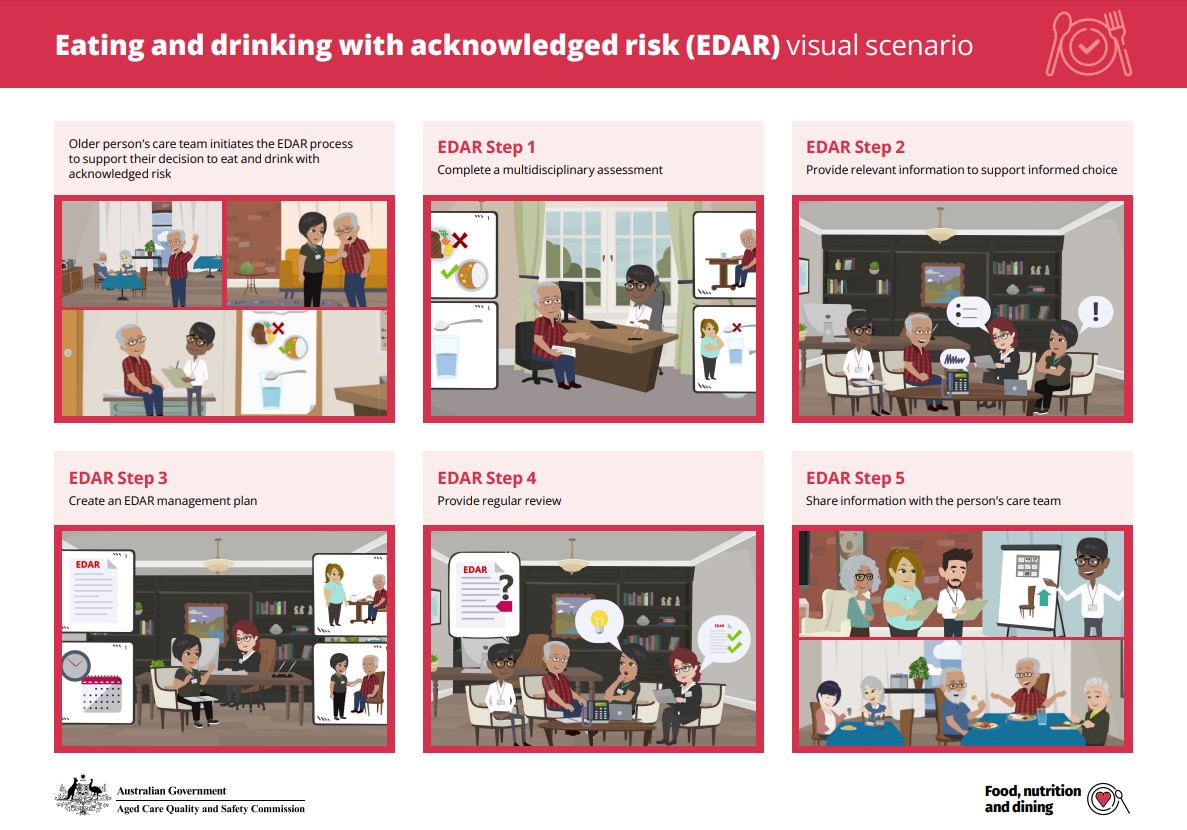
This fact sheet explains how the Aged Care Quality and Safety Commission (Commission) works with and supports aged care workers to ensure the safety and wellbeing of people receiving aged care. It provides advice on how you can raise a concern or complaint about the safety or quality of care delivered to older people.
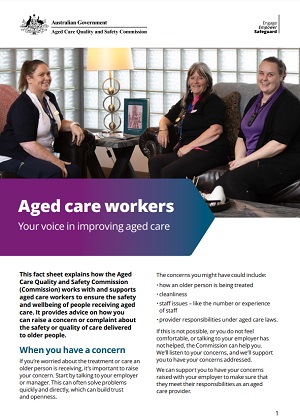
Our Regulatory Strategy sets out how the Commission will deliver on our goals and commitments. This resource may refer to information that will be updated from 1 July 2025 to align with the new Aged Care Act and Quality Standards.
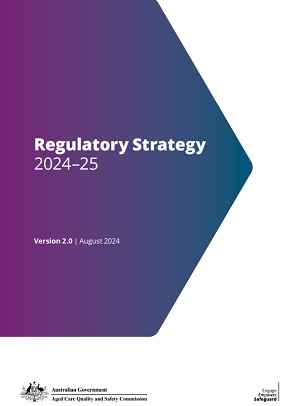
When considering impact on an individual and whether it meets the threshold for requiring treatment you need to consider the effect the incident has had, or could have had, on that consumer. The Impact Assessment Tool is designed to prompt providers to consider the potential or actual impacts on individual consumers.
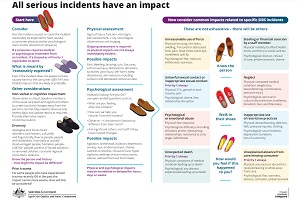
Use this checklist to ensure you allocate time, at least annually, to review the procedures you have in place to ensure you are meeting your provider governance obligations.

Use this discussion guide in consumer advisory body meetings to help start conversations and encourage ideas on important topics.

This workshop has been designed for home services providers and will help you to:

This workshop has been designed for home services providers and will help you to:
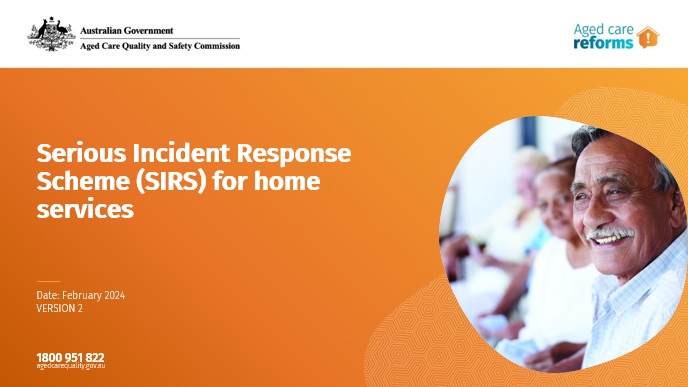
Letter from Ann Wunsch to home services providers who have not reported a serious incident in the first 12 months of the Scheme. This is a follow-up communication to our letter sent to all home services providers on 27 June 2023.
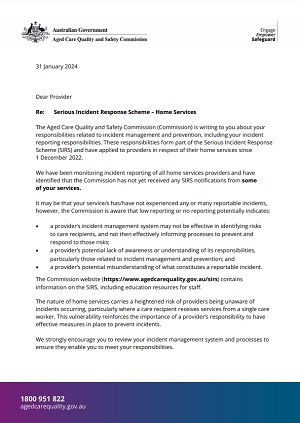
A new learning resource for providers, featuring case study insights from unexplained absence from care incidents reported to the Commission is now available.

This Regulatory Bulletin explains what procedural fairness is.
It also explains the circumstances where the Aged Care Quality and Safety Commission must provide procedural fairness and our approach to providing procedural fairness when making decisions.

As the national aged care regulator, part of the Commission’s role is to assess the performance of providers against the Aged Care Quality Standards. This fact sheet for providers explains how we apply procedural fairness to our regulatory decisions.

Joint letter from the Commission and the Department of Health and Aged Care to approved providers on medication management.

A fact sheet for volunteer managers in aged care.

Letter from Ann Wunsch, Executive Director – Approvals and Serious Incident Notifications, regarding information about your SIRS responsibilities and reporting obligations.

‘Additional care or services’ are care and services that are offered to residents of a residential aged care service by their provider, in addition to those that their provider is required to provide by law. By agreement with the resident, an approved provider can charge fees for additional care and services.
This Regulatory Bulletin outlines the expectations of the Commission relating to providers’ responsibilities around the charging of fees for additional care and services. It also outlines the Commission’s response where a provider does not meet their responsibilities.

This webinar explored the early lessons and emerging trends since the extension of the Serious Incident Response Scheme (SIRS) to home services on 1 December 2022. The discussion focused on the importance of quality reporting and shared insights learned since 1 December 2022.

This video explains the purpose and importance of the Prudential Standards. It outlines the responsibilities of aged care providers in managing refundable deposits and what they need to do to comply. It also discusses the consequences of not complying plus additional resources that can help.

A new learning resource for providers, featuring case study insights from ‘unreasonable use of force’ incidents reported to the Commission is now available.









